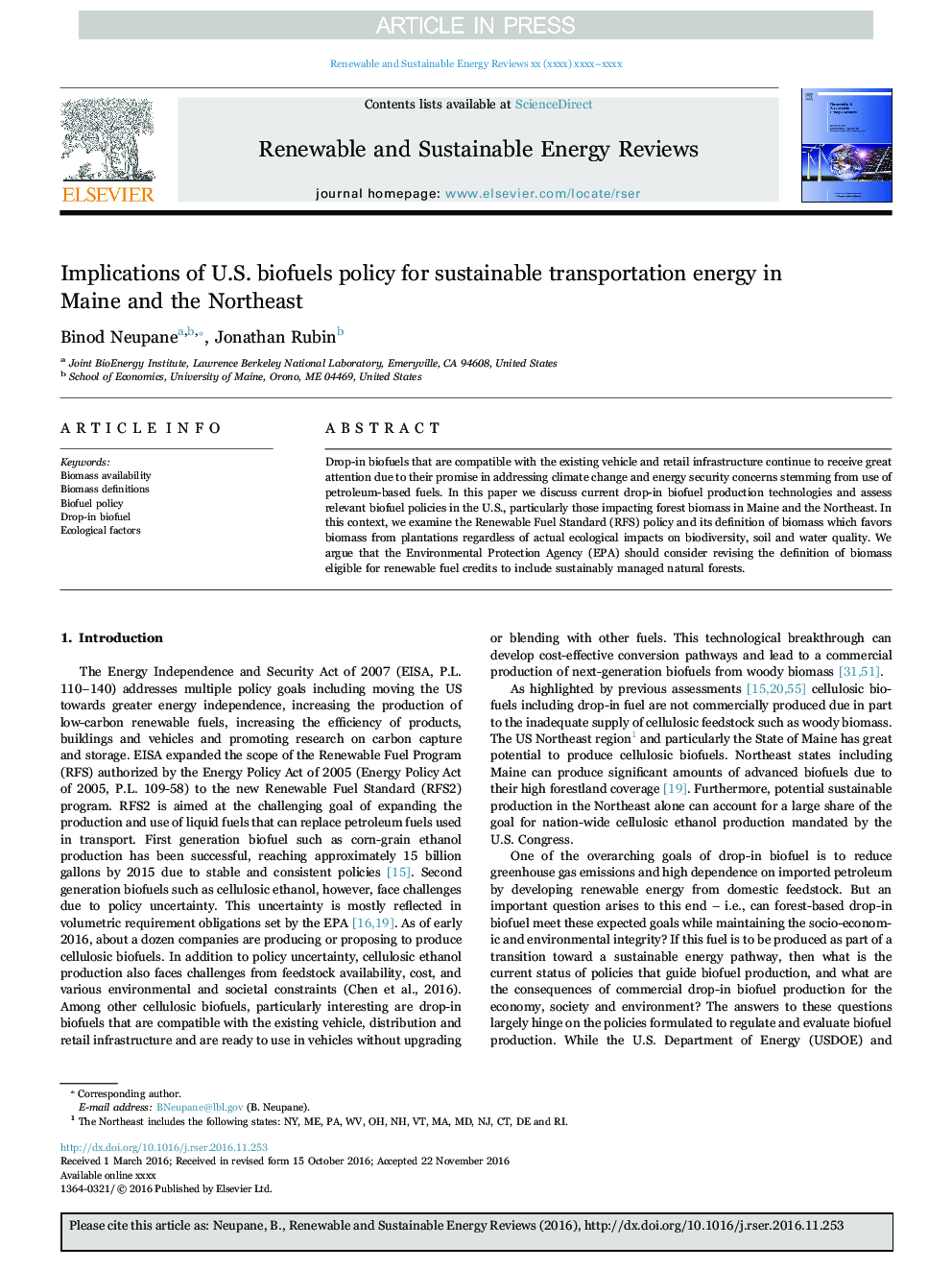| Article ID | Journal | Published Year | Pages | File Type |
|---|---|---|---|---|
| 5483258 | Renewable and Sustainable Energy Reviews | 2017 | 7 Pages |
Abstract
Drop-in biofuels that are compatible with the existing vehicle and retail infrastructure continue to receive great attention due to their promise in addressing climate change and energy security concerns stemming from use of petroleum-based fuels. In this paper we discuss current drop-in biofuel production technologies and assess relevant biofuel policies in the U.S., particularly those impacting forest biomass in Maine and the Northeast. In this context, we examine the Renewable Fuel Standard (RFS) policy and its definition of biomass which favors biomass from plantations regardless of actual ecological impacts on biodiversity, soil and water quality. We argue that the Environmental Protection Agency (EPA) should consider revising the definition of biomass eligible for renewable fuel credits to include sustainably managed natural forests.
Related Topics
Physical Sciences and Engineering
Energy
Renewable Energy, Sustainability and the Environment
Authors
Binod Neupane, Jonathan Rubin,
